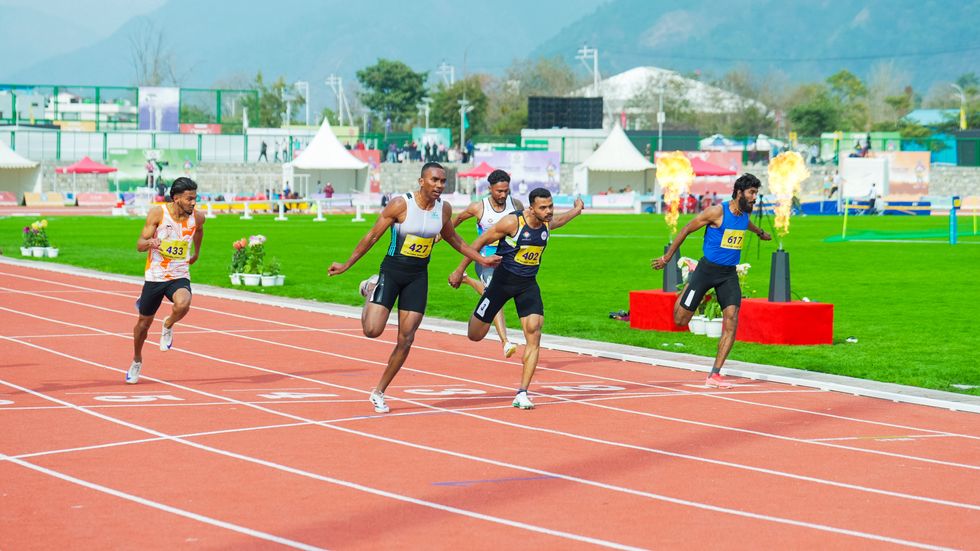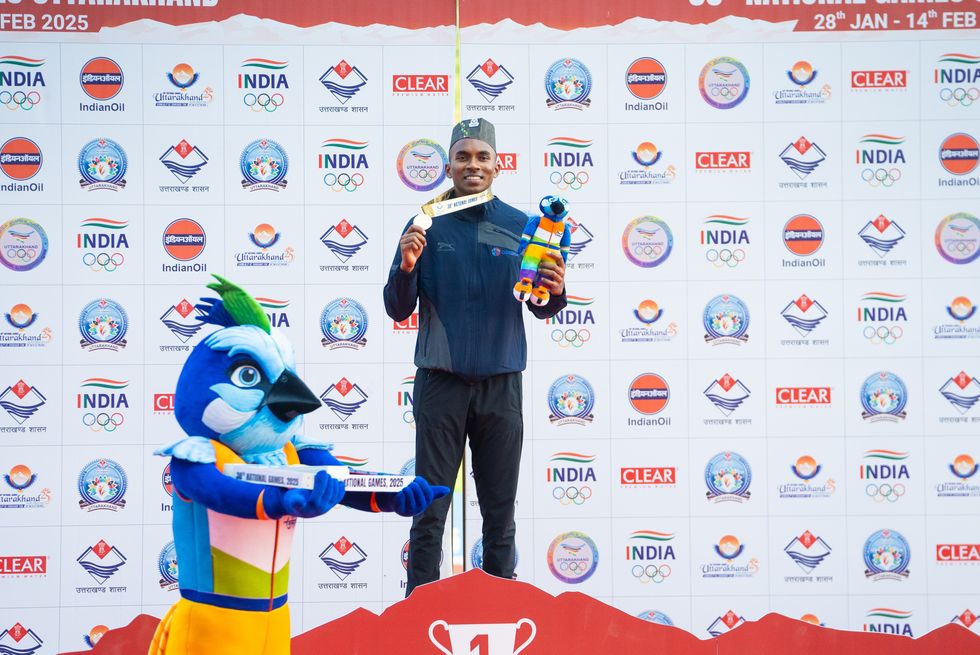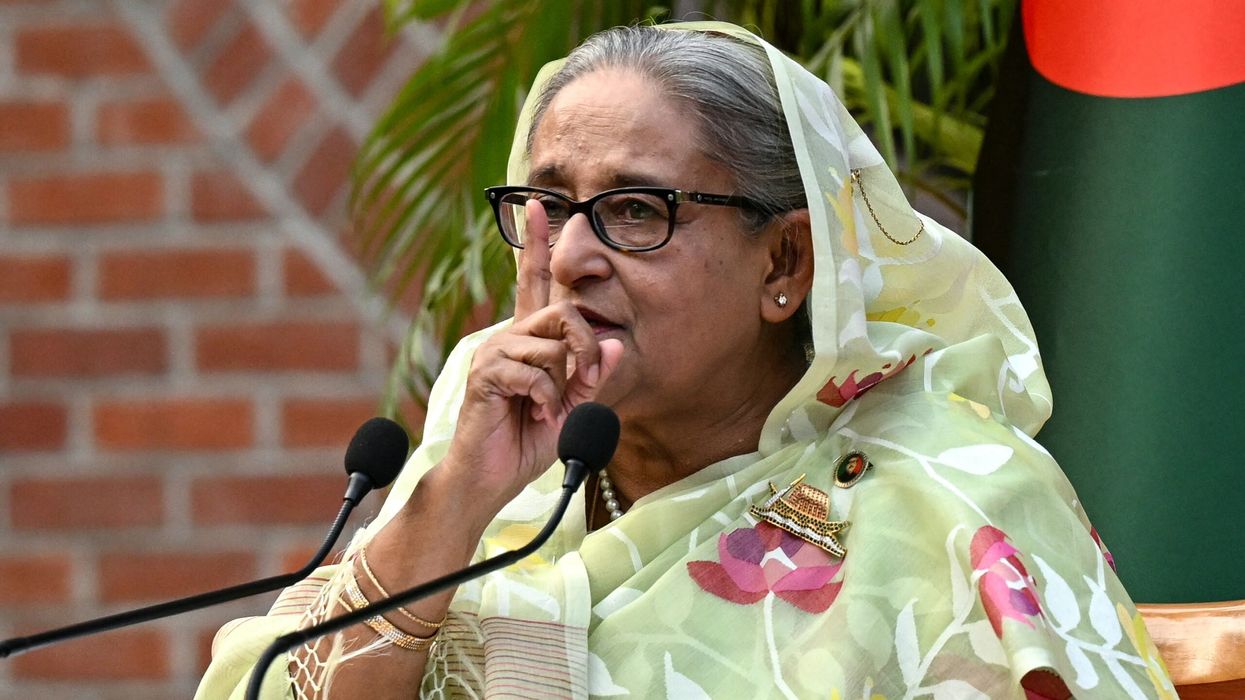INDIA and Pakistan exchanged heavy fire across their disputed border on Wednesday, after India carried out missile strikes targeting camps it said were linked to an earlier attack in Kashmir. The violence marked the worst confrontation between the two countries in two decades.
At least 36 people were reported killed. Pakistan said 26 civilians died in the Indian strikes and border firing. India said at least eight people were killed in shelling by Pakistan.
India's attack, which New Delhi called "Operation Sindoor", was named after the Hindi word for vermilion, a red powder that Hindu women put on the forehead or parting of their hair as a sign of marriage.
Indian air force officer Vyomika Singh said, "nine terrorist camps were targeted and successfully destroyed," days after New Delhi blamed Islamabad for supporting an attack in Indian-administered Kashmir.
ALSO READ: UN urges India-Pakistan restraint
The Indian army said, "justice is served", and the government said its actions "have been focused, measured and non-escalatory in nature".
Pakistan's defence minister Khawaja Muhammad Asif said Indian prime minister Narendra Modi had launched the strikes to "shore up" domestic popularity, but added, "The retaliation has already started. We won't take long to settle the score," he told AFP.

At a press conference in Islamabad, military spokesperson Ahmed Sharif Chaudhry said Pakistan had downed five Indian jets, including three French Rafale fighter aircraft. He said the jets had attacked targets in Pakistan.
Chaudhry also said a hydropower plant in Pakistan-administered Kashmir had been targeted, damaging a dam structure.
An unnamed Indian security source said three Indian jets crashed inside Indian territory. The wreckage of one aircraft was seen by an AFP photographer in Wuyan, on the Indian side of Kashmir.
ALSO READ: India begins hydro work after suspending Indus Waters Treaty: Report
'Shelling raining down'
Pakistan’s military said 21 civilians were killed in the strikes and five others in gunfire at the border. Four children, including two girls aged three, were among the dead.
In Muzaffarabad, the main city in Pakistan-administered Kashmir, troops cordoned off an area near a mosque that Islamabad said was hit. Explosion marks were also visible on nearby homes.
India's army later accused Pakistan of "indiscriminate" firing across the Line of Control. AFP reporters saw shells landing and flames erupting in the area.
"We woke up as we heard the sound of firing," said Farooq, a man from the Indian town of Poonch, speaking to Press Trust of India from his hospital bed. "I saw shelling raining down... two persons were wounded."
Azhar Majid, a local revenue officer in Poonch, said at least eight people were killed and 29 injured in the town.
India’s military response followed the April 22 attack on tourists in Pahalgam, Indian-administered Kashmir, which left 26 people dead, mostly Hindu men. New Delhi blamed the Pakistan-based group Lashkar-e-Taiba, which is designated a terrorist organisation by the UN.
ALSO READ: India halts Pakistan imports as tensions rise over Kashmir killings
No group has claimed responsibility for the attack. Pakistan denied involvement and called for an independent investigation.
Since April 24, India and Pakistan have exchanged nightly fire along the Line of Control, according to India’s army. Pakistan said it had also conducted two missile tests.
'Maximum restraint'
India and Pakistan have fought several wars since 1947, when they were formed after British rule ended.
The latest strikes are on a larger scale than India's 2019 operation, when it said it targeted camps following a suicide bombing that killed 40 Indian security personnel.
"India's strike on Pakistan is of much greater scale than the one in 2019... Pakistan's response... has also exceeded the scale of 2019," said US-based analyst Michael Kugelman.
UN spokesperson Stephane Dujarric said in a statement, "The world cannot afford a military confrontation between India and Pakistan."
US President Donald Trump said he hoped the fighting "ends very quickly". US Secretary of State Marco Rubio said he had spoken to top officials in both countries and was monitoring the situation "closely".
India’s army said it had shown "considerable restraint in selection of targets and method of execution" and stated, "no Pakistani military facilities have been targeted".
Pakistan Prime Minister Shehbaz Sharif called the Indian strikes "unprovoked" and "cowardly" and said the "heinous act of aggression will not go unpunished."
An insurgency has been ongoing in Indian-administered Kashmir since 1989. India accuses Pakistan of supporting armed groups in the region, a charge Islamabad denies.
Iranian foreign minister Abbas Araghchi is expected in New Delhi on Wednesday after visiting Islamabad two days earlier, as Iran seeks to mediate.
India planned to conduct civil defence drills on Wednesday. Schools were shut in Pakistan’s Punjab and Kashmir regions, officials said.
The strikes came hours after Modi said water flowing across India's borders would be stopped. Pakistan had said any move to tamper with cross-border rivers would be an "act of war".
(With inputs from AFP)


















 Kujur's transformation began when he joined the Reliance Foundation programme in December 2022
Kujur's transformation began when he joined the Reliance Foundation programme in December 2022


